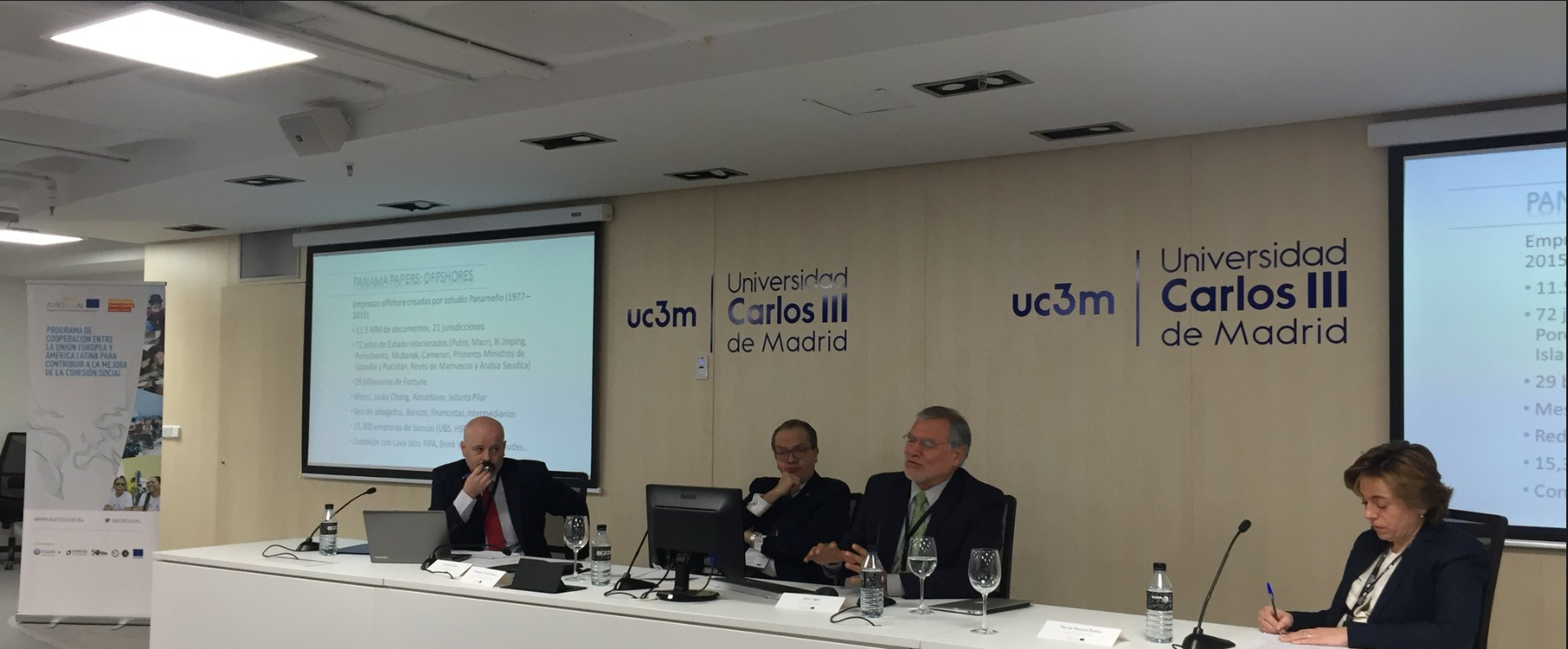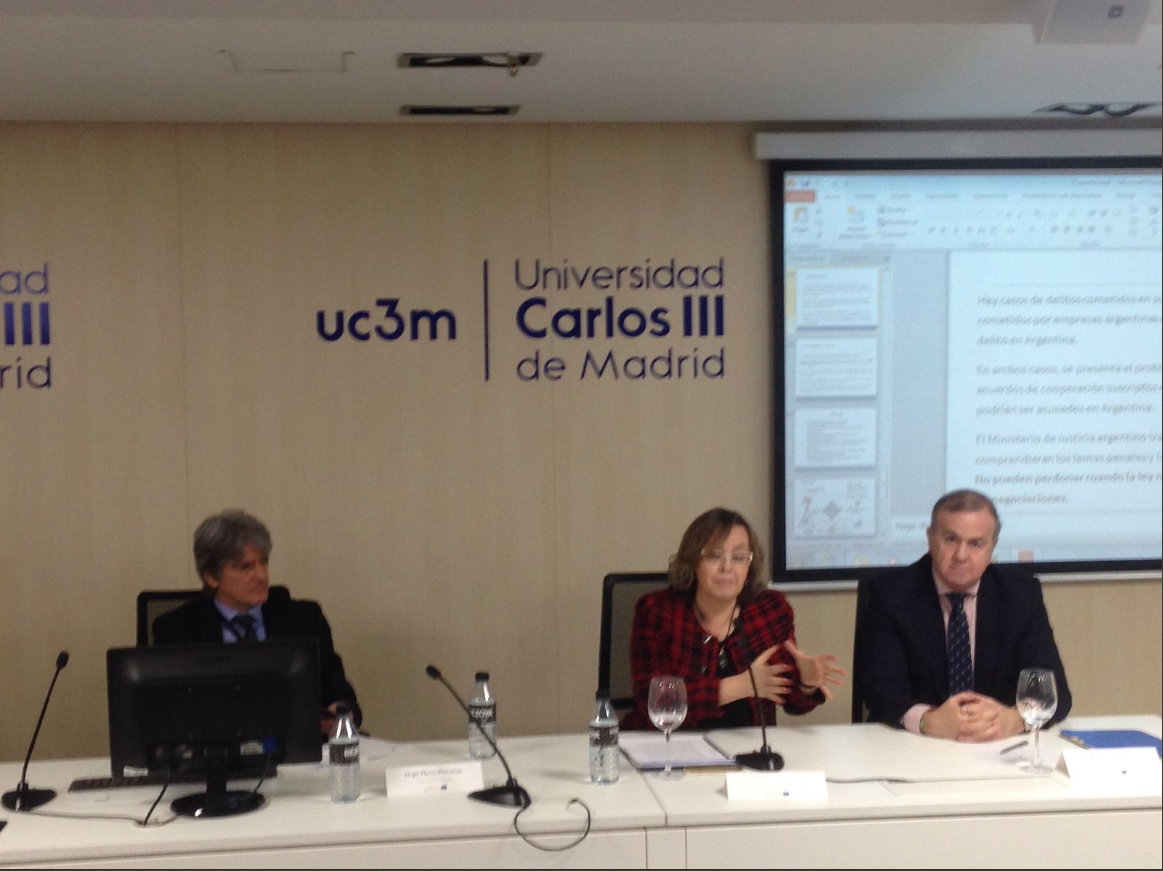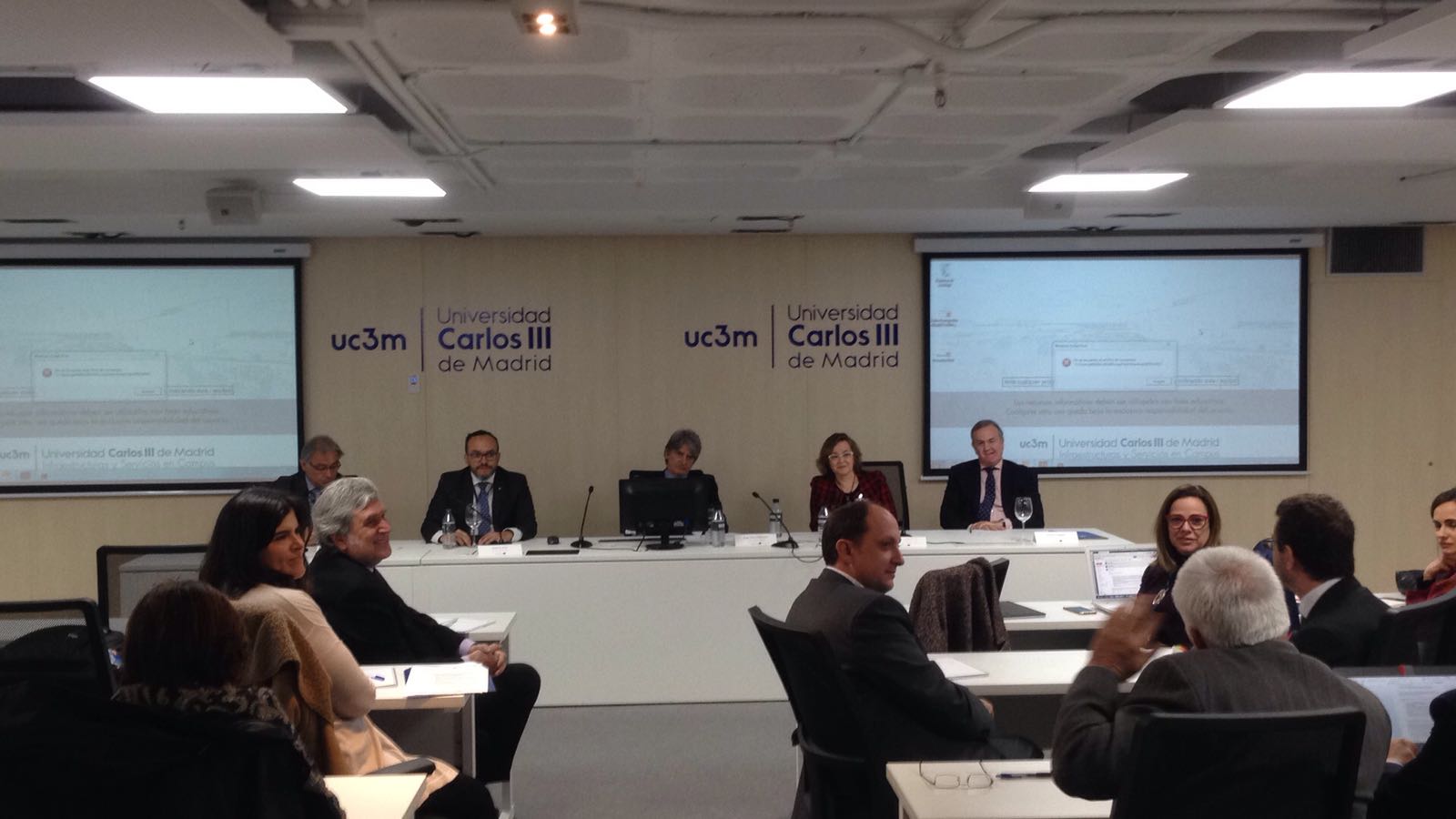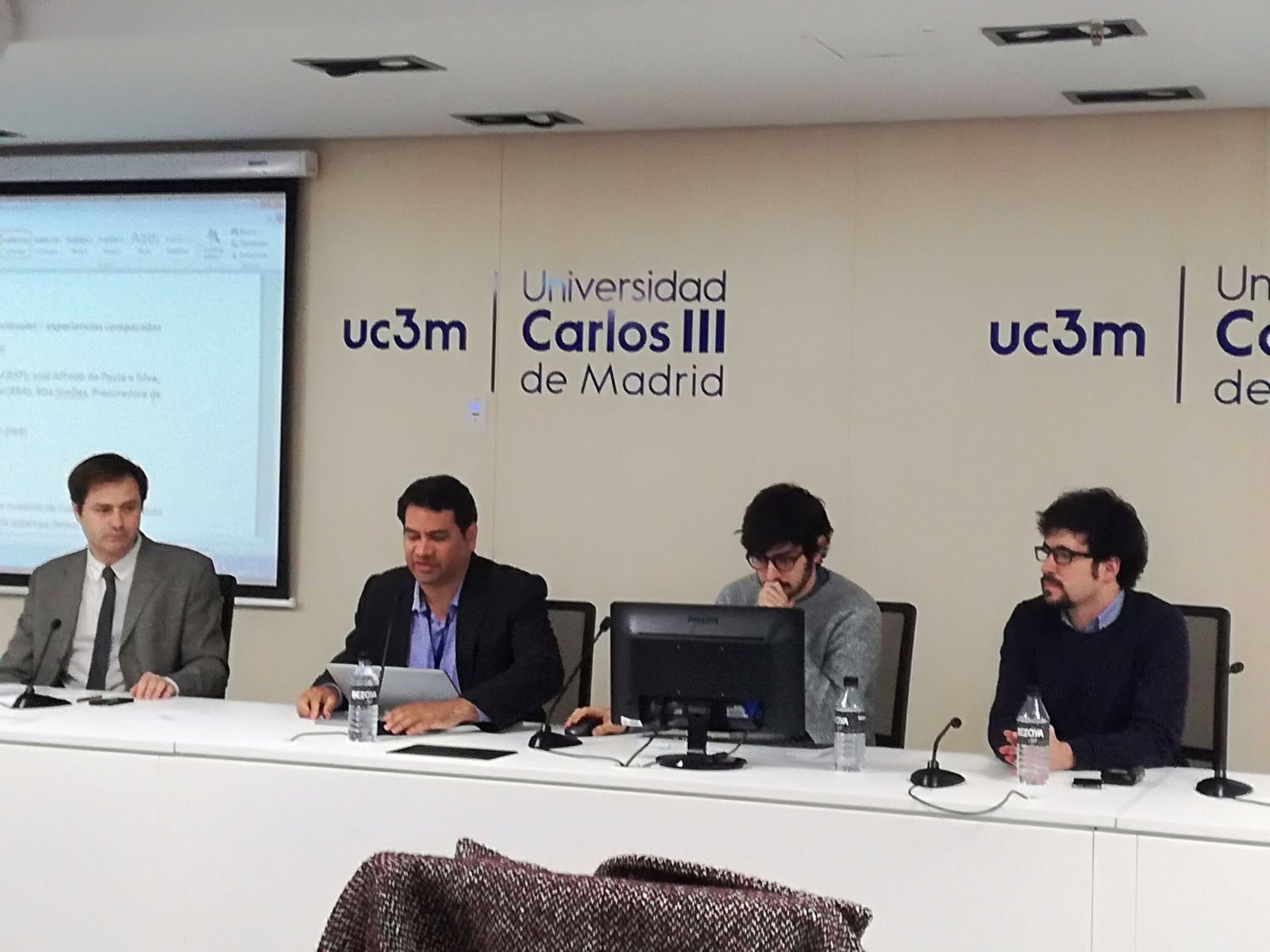The role of international cooperation in the fight against corruption

On March 5th and 6th, Researchers at Universidad Carlos III de Madrid (UC3M), EUROsociAL+ program and Transparency International will be holding a meeting in Madrid, bringing together international experts on the fight against corruption.
This meeting, which will take place on the Madrid-Puerta de Toledo campus of UC3M, will focus on developing strategies to strengthen international cooperation in the fight against corruption in Latin America within the framework of the European Union – Latin America cooperation program, EUROsociAL+. Its objective is to stimulate changes that will optimize the fight against corruption. The even is being organized by the FIIAPP and TI in coordination with two UC3M research projects (“Responsabilidad de empresas transnacionales” – “The responsibility of transnational firms”, directed by Professor Jacobo Dopico; and the “Cultura de la Legalidad” – Culture of Legality - Program, directed by Professors José María Sauca and Javier Álvarez).
The forum brings together representatives of the European Council’s GRECO – Group of States Against Corruption, and the OCDE (Organization for Economic Cooperation and Development), as well as civil servants, representatives of public ministries, judicial system institutions and federal attorney’s offices of Argentina, Brazil, Colombia, Spain and Portugal. Representing civil society will be experts from the chapters of Transparency International of Argentina, Brazil, Peru and Venezuela. Representing academia, professors from the universities of Buenos Aires, Complutense (Madrid) and Carlos III de Madrid will be speaking. These professors are participating in the R+D project “La responsabilidad penal de empresas transnacionales por violaciones a los Derechos Humanos y al Medio Ambiente” (“The legal responsibility of transnational firms in cases of Human Rights and Environmental violations”) and in the “Programa Interuniversitario Cultura de la Legalidad” (“Interuniversity Culture of Legality Program”).
The ultimate goal is to present an accurate diagnosis of the situation, identify best practices and generate strategic recommendations that can have an impact at forums such as the VIII Cumbre de las Américas de 2018 en Lima (Perú) (Americas Summit), el G-20 and this year’s C-20 in Argentina, as well as at the Summit between the European Union and the Community of Latin American States of the Caribbean.
The inauguration of this meeting includes representatives of UC3M, FIIAPP (International and Ibero-American Foundation for Administration and Public Policies) and the Regional Council for the Americas of the Secretariat of Transparency International in Berlin.
International cooperation is an indispensable tool for effectively combating cases of corruption, since the search for evidence and proof requires collaboration among different jurisdictions. This occurs, for example, when assets are located in foreign countries, or in requests for legal reciprocity or extradition. In addition, the experts point out that cases of transnational corruption are usually complex and politically sensitive. Therefore, dealing with them requires numerous resources, political will, and excellent planning.
Despite the fact that considerable progress has been made at the bilateral, regional and international levels with regard to investigations and trials for serious crimes, there are still serious challenges impeding the investigations of cases of corruption. According to a 2015 OCDE study, 70% of the civil servants working in anti-corruption believe that there are numerous obstacles in the area of reciprocal legal assistance and that these obstacles have a negative impact on their work. Some of these are associated with linguistic differences, dual criminality, immunity, fiscal issues or bank secrecy issues, among others.
.



